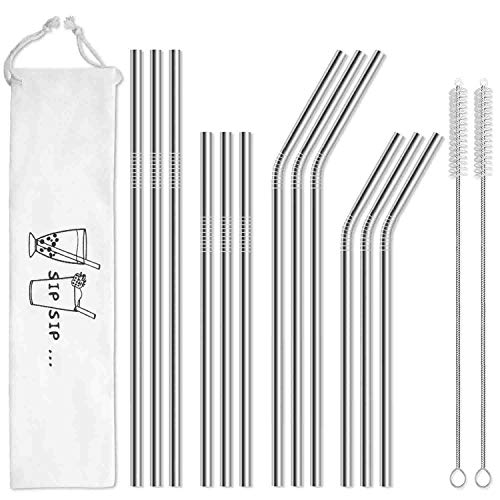
Hey there, eco-warrior! Ready to embark on a journey towards a low-waste lifestyle? Brace yourself for a jaw-dropping fact: did you know that the average person generates a mind-boggling 4.4 pounds of waste per day? That’s equivalent to the weight of a small bowling ball! But fret not, because in this blog post, we’re going to show you how to ditch the waste and embrace a more sustainable way of living. Get ready to make a positive impact on the planet and your own life – let’s dive in!
Top Picks for Living Sustainably and Minimizing Waste
Understanding the concept of low-waste living
In today’s world, where environmental concerns are becoming increasingly important, more and more people are embracing the concept of low-waste living. But what exactly does low-waste living mean? And why is it important? In this blog section, we will explore the key aspects of low-waste living, including waste reduction, reusing items, and effective recycling. By understanding these concepts, we can all take steps towards reducing our environmental footprint and creating a more sustainable future.
Waste Reduction: A Key Pillar of Low-Waste Living
Why is waste reduction important?
Waste reduction is at the core of low-waste living. By minimizing the amount of waste we produce, we can help conserve natural resources, reduce pollution, and minimize the environmental impact of our daily activities. Here are some key reasons why waste reduction is crucial:
- Conservation of resources: When we reduce waste, we also reduce the need for raw materials, energy, and water used in the production and disposal of goods. This helps conserve natural resources for future generations.
- Reduced pollution: Waste disposal, especially in landfills, can lead to air, soil, and water pollution. By reducing waste, we can minimize these pollution levels and protect our ecosystems.
- Climate change mitigation: The production, transportation, and disposal of waste contribute to greenhouse gas emissions. By reducing waste, we can help mitigate climate change and its adverse effects.
How can we reduce waste?
Reducing waste starts with making conscious choices in our daily lives. Here are some practical tips to help you get started:
- Shop mindfully: Opt for products with minimal packaging or choose packaging-free alternatives. Look for brands that prioritize sustainable packaging practices, such as using recycled materials or compostable packaging.
- Say no to single-use items: Invest in reusable alternatives to single-use items like water bottles, coffee cups, and shopping bags. These small changes can significantly reduce the amount of waste generated.
- Embrace sustainable practices: Consider composting organic waste, repairing items instead of replacing them, and sharing or donating unwanted items instead of throwing them away.
Reusing Items: Giving Products a Second Life
What is the importance of reusing items?
Reusing items is another key aspect of low-waste living. By giving products a second life, we extend their useful lifespan, reduce demand for new products, and minimize waste generation. Here’s why reusing items is important:
- Resource conservation: When we reuse items, we reduce the need for new production, saving valuable resources like energy, water, and raw materials.
- Economic benefits: Reusing items can save us money in the long run. Instead of constantly buying new products, we can find creative ways to repurpose and reuse what we already have.
How can we incorporate reusing into our lives?
Incorporating reusing into our daily lives can be both fun and rewarding. Here are some practical ideas to get you started:
- Upcycling: Turn old furniture, clothing, or other items into something new and useful. For example, you can transform a wooden crate into a stylish shelf or repurpose old t-shirts into reusable shopping bags.
- Swap or borrow: Consider participating in clothing swaps or borrowing tools, books, or other items from friends or neighbors instead of buying new ones.
- Buy second-hand: Explore thrift stores, online marketplaces, or local community groups for purchasing second-hand items. This not only reduces waste but can also help you find unique and affordable products.
Effective Recycling: Closing the Loop
Why is effective recycling important?
While waste reduction and reusing are essential, there will always be some materials that need to be recycled. Effective recycling helps divert waste from landfills and conserve valuable resources. Here’s why recycling is important:
- Resource conservation: Recycling reduces the need for extracting and processing raw materials, conserving natural resources such as timber, minerals, and metals.
- Energy and emissions savings: Recycling often requires less energy compared to producing new materials. This results in reduced greenhouse gas emissions and air pollution.
How can we recycle effectively?
To ensure effective recycling, it’s important to understand the recycling processes and guidelines in your area. Here are some key tips to keep in mind:
- Know your local recycling program: Familiarize yourself with what can and cannot be recycled in your area. Different recycling facilities may accept different materials, so it’s essential to follow local guidelines.
- Properly prepare recyclables: Rinse out containers, remove any non-recyclable components, and flatten or disassemble items as needed. This helps ensure a higher recycling success rate.
- Consider product recycling programs: Some brands offer recycling programs for their products. For example, certain electronics manufacturers have take-back programs for old devices, ensuring they are recycled responsibly.
Simple steps to reduce waste in your daily life
Living a low-waste lifestyle doesn’t have to be complicated. By making a few simple changes to your daily routine, you can significantly reduce waste and contribute to a healthier planet. In this blog section, we’ll share practical tips and strategies that are easy to incorporate into your everyday life.
Shop Wisely
One of the easiest ways to reduce waste is to shop wisely. Here are some tips to keep in mind:
- Bring your own bags: Carry reusable shopping bags whenever you go grocery shopping to avoid using single-use plastic bags. Brands like Baggu and ChicoBag offer durable and stylish reusable bags.
- Buy in bulk: Opt for purchasing items in bulk to minimize packaging waste. Look for stores that offer bulk bins for staples like grains, nuts, and spices.
- Choose products with minimal packaging: When shopping for personal care items or household products, select brands that use minimal or recyclable packaging. Lush and Dr. Bronner’s are great examples of companies that prioritize eco-friendly packaging.
Use Reusable Products
Another effective way to reduce waste is by using reusable products. Consider the following:
- Water bottles and coffee cups: Carry a reusable water bottle and coffee cup with you to avoid using single-use plastic bottles and disposable cups. Brands like S’well and KeepCup offer stylish and durable options.
- Reusable cutlery and straws: Keep a set of reusable cutlery and metal or bamboo straws in your bag to use when dining out or getting takeout. To-Go Ware and Brush with Bamboo are popular brands offering eco-friendly alternatives.
- Cloth napkins and towels: Instead of using disposable paper napkins and paper towels, switch to reusable cloth napkins and towels. There are many Etsy sellers offering handmade options, or you can go for Marley’s Monsters or Bee’s Wrap for eco-friendly alternatives.
Composting and Food Waste
Managing food waste is a crucial part of reducing waste in your daily life. Consider these strategies:
- Start composting: Composting is a great way to divert organic waste from landfills. Invest in a compost bin for your backyard or explore indoor options like Nature’s Footprint or Worm Factory for small spaces.
- Meal planning and proper storage: Plan your meals to minimize food waste and store leftovers properly to extend their shelf life. Investing in quality containers like Pyrex or Stasher bags can help keep food fresh.
Recycling and Proper Disposal
While recycling is important, it’s equally essential to dispose of waste properly. Here are some tips:
- Know your local recycling guidelines: Familiarize yourself with your local recycling guidelines to ensure you’re recycling correctly. Websites like Recyclebank or Earth911 provide useful information and resources.
- Donate or repurpose: Instead of throwing away unwanted items, donate them to local charities or repurpose them creatively. Websites like Freecycle and Upcycle That offer inspiration and opportunities to repurpose items.
Making sustainable choices in different areas of your life
Living a sustainable lifestyle goes beyond just recycling and using reusable bags. It extends to various aspects of our lives, from our homes to our travel choices, fashion decisions, and personal care routines. In this blog section, we will delve deeper into each of these areas and provide you with practical ideas and solutions to make sustainable choices.
Low-Waste Options for Home
Our homes are where we spend a significant amount of our time, and it’s crucial to make sustainable choices in this space. Here are some low-waste options for your home:
- Reducing Energy Consumption
- Install energy-efficient appliances and light bulbs to minimize energy usage.
- Use a programmable thermostat to regulate temperature and reduce heating/cooling waste.
- Consider installing solar panels to generate renewable energy.
- Water Conservation
- Install low-flow showerheads and faucets to reduce water consumption.
- Collect rainwater for gardening purposes.
- Repair any leaks promptly to prevent water wastage.
- Waste Management
- Practice proper waste segregation by separating recyclables, organics, and non-recyclables.
- Compost food scraps to reduce landfill waste.
- Use reusable containers and bags instead of single-use plastic.
Sustainable Travel Choices
Traveling is an enriching experience, but it can also have a significant environmental impact. Here are some sustainable travel choices you can make:
- Eco-friendly Accommodation
- Look for hotels or accommodations that have sustainable practices, such as energy-efficient systems and waste reduction initiatives.
- Choose eco-lodges or homestays that support local communities and minimize environmental impact.
- Public Transportation and Cycling
- Opt for public transportation whenever possible to reduce carbon emissions.
- Rent a bike or use bike-sharing services to explore your destination sustainably.
- Offsetting Carbon Footprint
- Consider purchasing carbon offsets to compensate for the emissions generated during your travel.
- Support initiatives that plant trees or invest in renewable energy projects.
Sustainable Fashion Choices
The fashion industry has a significant environmental footprint, but we can make conscious choices to minimize its impact. Here are some sustainable fashion options:
- Second-Hand Shopping
- Explore thrift stores, consignment shops, or online platforms for pre-loved clothing.
- Swap clothes with friends or participate in clothing swaps to refresh your wardrobe sustainably.
- Ethical and Sustainable Brands
- Look for brands that prioritize fair trade practices, use organic or recycled materials, and have transparent supply chains.
- Support brands that offer recycling or take-back programs for old garments.
- Investing in Timeless Pieces
- Opt for high-quality, durable clothing that will last longer and reduce the need for frequent replacements.
- Choose versatile pieces that can be mixed and matched to create multiple outfits.
Sustainable Personal Care
Our personal care routines can also be an opportunity to make sustainable choices. Here are some ideas to make your personal care routine more sustainable:
- Natural and Eco-friendly Products
- Choose personal care products that use natural ingredients and are free from harmful chemicals.
- Look for packaging made from recycled materials or opt for products with minimal packaging.
- DIY and Refillable Options
- Make your own personal care products like shampoo, conditioner, and face masks using easily accessible ingredients.
- Opt for refillable containers for products such as hand soap or body lotion to minimize waste.
- Reusable and Sustainable Tools
- Use reusable cotton rounds or cloth wipes instead of disposable ones.
- Switch to a bamboo or stainless steel safety razor instead of disposable plastic razors.
Making sustainable choices in various areas of our lives doesn’t have to be overwhelming. By implementing these practical ideas and solutions, we can all contribute to a more sustainable future. Let’s embrace these changes and be mindful of the impact our choices have on the environment!
Small Changes Can Make a Big Difference
In conclusion, by following the tips and suggestions outlined in this blog post, you can take meaningful steps towards living a low-waste lifestyle. Not only will you be reducing your environmental impact, but you’ll also be making positive changes for your own well-being. Remember, every small action counts, so start today and join the movement towards a more sustainable future.
Frequently Asked Questions about Low-waste Living
What are some eco-friendly alternatives to everyday products that can help you cut down on waste?
Sure! There are several eco-friendly alternatives to everyday products that can help you reduce waste. Here are a few examples:
- Reusable water bottles: Instead of using disposable plastic water bottles, opt for a durable and reusable one. This will help reduce the amount of plastic waste generated.
- Cloth bags: Instead of using single-use plastic bags, bring your own cloth bags when you go grocery shopping. They are not only more sustainable but also sturdier.
- Stainless steel or bamboo straws: Replace disposable plastic straws with reusable alternatives like stainless steel or bamboo straws. They are easy to clean and can be used over and over again.
- Beeswax wraps: Instead of using plastic cling wrap or aluminum foil, try using beeswax wraps to store and cover food. They are reusable, washable, and eco-friendly.
- Compostable or bamboo toothbrushes: Switching to compostable or bamboo toothbrushes can help reduce plastic waste in landfills. These alternatives are biodegradable and sustainable.







![100% Compostable Clamshell Take Out Food Containers [8X8" 50-Pack] Heavy-Duty Quality to go Containers, Natural Disposable Bagasse, Eco-Friendly Biodegradable Made of Sugar Cane Fibers](https://m.media-amazon.com/images/I/516g4V6-a0L.jpg)






